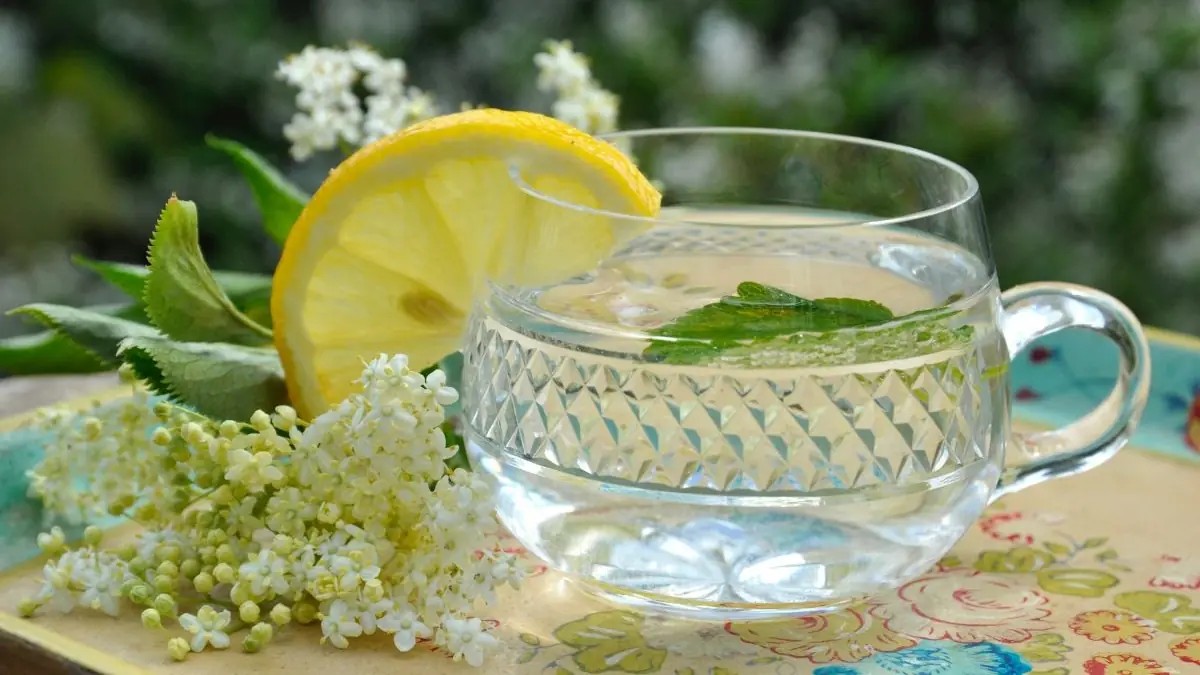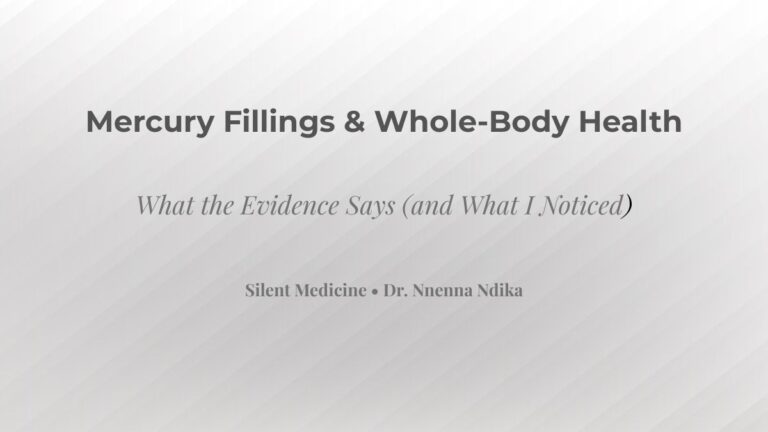Water, Minerals & Mood — How Are They Connected?
Quick Answer:
Hydration isn’t only how much water you drink. It’s also about electrolyte balance (sodium, potassium, magnesium) and your relationship with what you drink. Steady minerals help nerves fire and stress circuits regulate. Many people also notice a lift when they treat water as a living input… choosing mineral-rich sources and using compassionate self-talk so the body can receive it.

Let’s look at what I really mean.
1) Your body’s “water field”
We are largely water (roughly 60–70% depending on age, sex, and tissue composition). When we’re well hydrated, cells maintain their shape, enzymes work efficiently, and the brain’s signaling is smoother. This means we experience steadier energy and more even mood. In the Silent Medicine frame, water is both nutrient and medium. Why? Because water carries minerals, and it carries meaning in relation to our posture, breath, and inner dialogue as we drink.
2) Minerals: small amounts, big signals
Electrolytes are the quiet conductors of mood and focus:
- Sodium & Potassium keep electrical gradients balanced for nerve impulses.
- Magnesium participates in hundreds of reactions tied to stress modulation and muscle relaxation.
Even micro-amounts matter because these are signals, not just “fuel.” If we sweat, drink very low-mineral water, or lean on diuretics (coffee/tea), we can feel hydrated yet unbalanced… thirsty, foggy, or “flat.”
Safety note: If you have blood pressure, kidney, heart, or endocrine conditions, personalize mineral intake with your clinician.
3) “Living water”: nutrients + vibration
From a practical view, “living water” means mineral presence (naturally or via foods like broth/citrus/trace-mineral drops). From an energetic view, water can be treated as a carrier of vibration such as how we speak to the body, the intention we bring, the stillness we hold for a breath before sipping. Evidence for energetic claims varies. Still, many people notice that kind attention + mineral-rich water feels different than chugging distractedly. Silent Medicine honors both: physiology + presence.
4) Everyday gaps—and easy fixes
- Morning lag? Try water first, then coffee/tea.
- Filtered but “flat” water? Re-mineralize: a pinch of mineral salt (to taste), a slice of citrus, or a few trace-mineral drops.
- Heavy sweating? Favor mineral-rich foods (broths, olives, leafy greens, cacao) and consider an electrolyte tablet without added dyes nor sweeteners.
- Night cramps or “tired-but-wired”? Some do well with daytime magnesium-rich foods and a screen-light dim in the evening.
5) Mind-body practice: how you drink matters
Self-talk and mood are bidirectional: as you speak to your body, your body often softens to receive. Think: food shapes mood, and minerals modulate the signal.
Season and context matter: in hot weather, hard training, or at altitude, electrolyte needs rise while plain water alone can dilute balance. If you run low-BP or you are salt-sensitive, favor adding minerals to your food first and then, take more frequent, but smaller sips of salted fluids. The aim isn’t “more.” It’s the right mix for today’s inputs so your nervous system stays steady without chasing thirst.
Micro-Practice (60–90 seconds): The 4-Sip Ritual
- See — Look at the water and pause your breath for a beat.
- Speak — Whisper a simple line: “Thank you, body. Receive what you need.”
- Sip — Take 4 small sips, mouth relaxed, exhale longer than inhale.
- Sense — Notice jaw/shoulders soften; track any tiny shift in clarity.
(Optional: add a pinch of mineral salt or a drop of trace minerals if appropriate for you.)
Reflection
When I feel “thirsty but not satisfied,” could it be minerals, pace, or presence? What one tweak changes how water lands in my body?
Gentle how-to (food-first)
- Keep it simple; tiny, consistent inputs beat extremes.
- Build from meals: leafy greens, avocado, broth, olives, pumpkin seeds, cacao, mineral waters.
- Re-mineralize low-Total Dissolved Solids (TDS) water when needed.
CTA
Try my 7 – 10-minute “Return to Calm” as a reset before the 4-Sip Ritual:
Explore gentle tools on our Recommended page (light, air, sleep):
Related Reading
- What’s the Best Drinking Water for Everyday Use?
- Plastic vs. Glass — Which Is Less Harmful?
- Our Recommended Light, Air & Sleep Tools
FAQs
Q1. Can hydration really influence mood and energy?
Yes. Adequate water plus balanced electrolytes (sodium, potassium, magnesium) support nerve signaling and stress regulation. Many people feel steadier energy and a calmer baseline when both are in place.
Q2. Is plain water enough, or do I need minerals too?
Plain water is essential, but low-mineral water, sweating, or diuretics (including coffee/tea) can increase mineral needs. Food-first minerals often help: broths, leafy greens, olives, cacao, seeds, mineral waters.
Q3. What’s the simplest way to re-mineralize low-mineral water?
Try a pinch of mineral-rich salt to taste, a slice of citrus, or a few trace-mineral drops. Keep it gentle and notice how you feel.
Q4. How do I tell dehydration from being under-mineralized?
Dehydration often shows up as thirst, dry mouth, darker urine. Under-mineralization can feel like “thirsty but not satisfied,” brain fog, or cramping, especially after sweating even when you’ve been drinking water.
Q5. Does intention or self-talk matter when drinking water?
Evidence varies for energetic claims, but many find that slowing down, softening the breath, and using kind self-talk changes how water is received… physically and emotionally.
Q6. Who should be cautious with extra minerals or electrolytes?
If you have blood pressure, kidney, heart, or endocrine conditions, personalize mineral intake with your clinician and avoid unsupervised electrolyte loading.
Clinical services are provided within my scope as a licensed clinical psychologist (CA, RI). My Doctor of Integrative Medicine credential is a doctoral degree with board certification by the Board of Integrative Medicine (BOIM) and does not represent a medical/physician license. All educational content is for learning only and is not a substitute for professional medical or psychological care.
About Dr. Nnenna Ndika
Dr. Nnenna Ndika is an integrative, trauma-informed clinical psychologist (CA/RI) and Doctor of Integrative Medicine (BOIM). Her work bridges neuroscience, somatic regulation, and environmental rhythms—simple, minimalist practices that help the body remember safety and the mind regain quiet strength. Silent Medicine is educational only; it does not replace medical or psychological care. Begin with Start Here or explore Mind-Body Healing.






